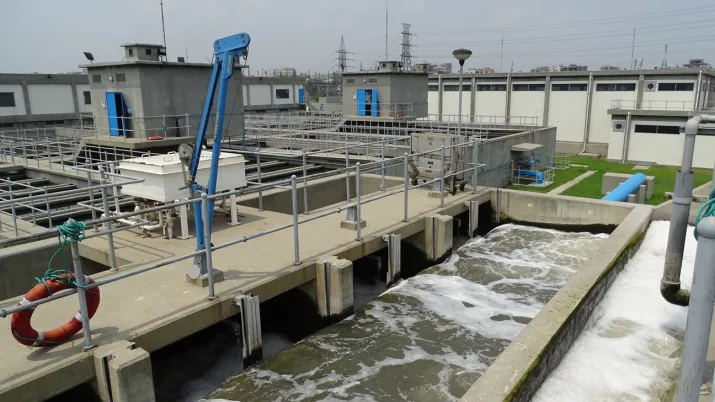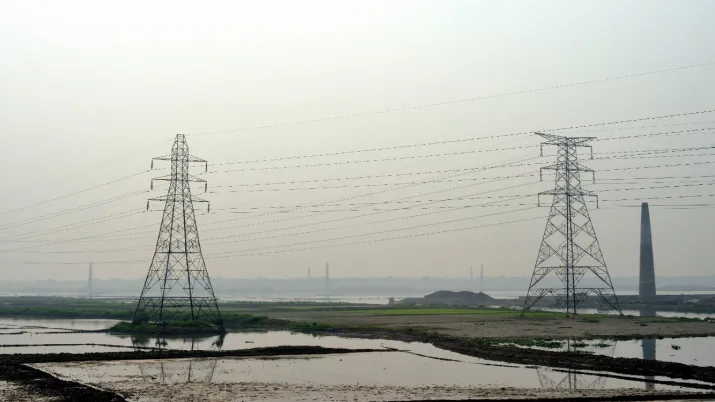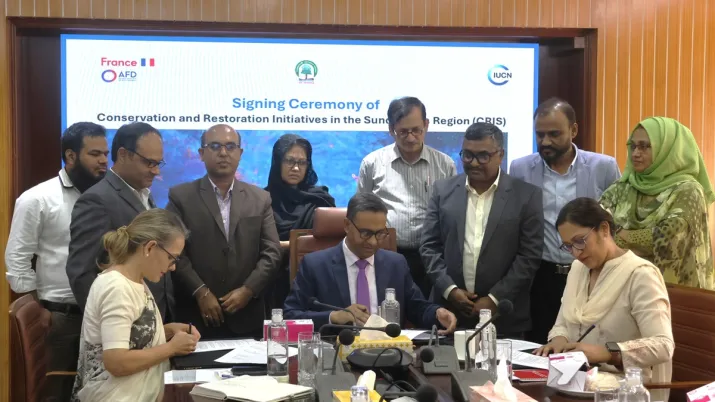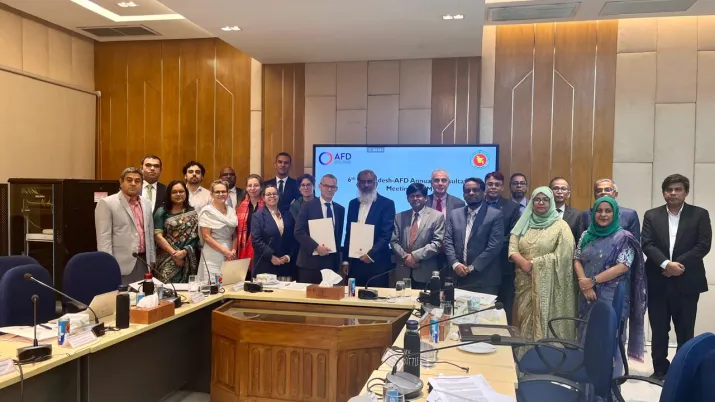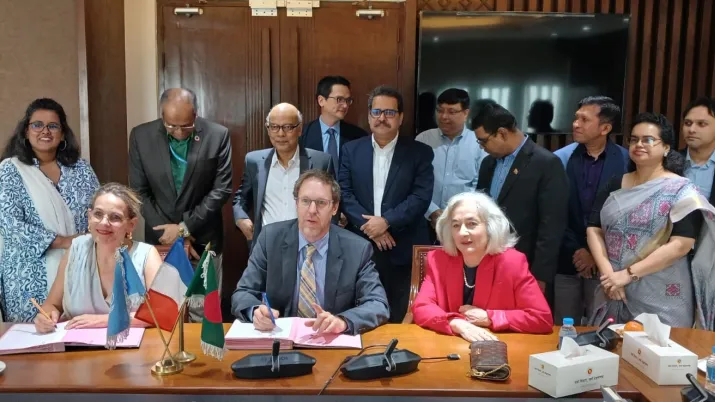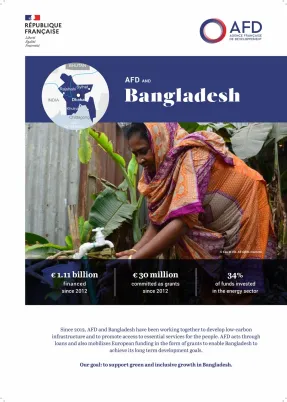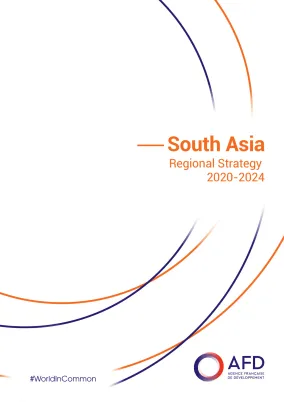Share the page
Bangladesh
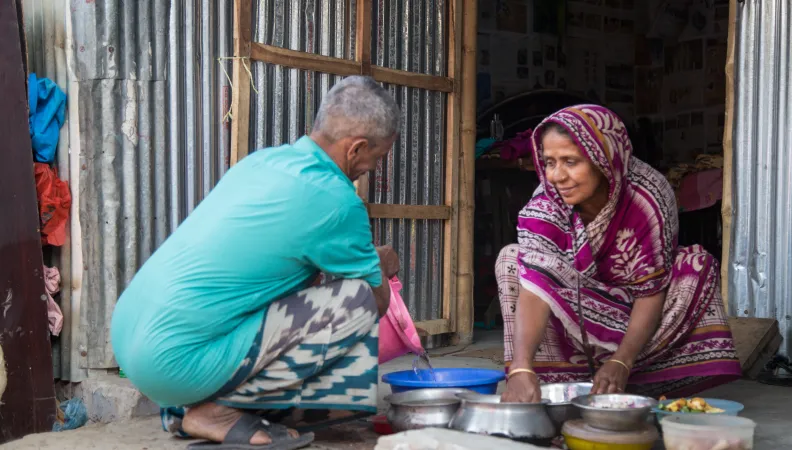
While Bangladesh has experienced unprecedented economic growth in its history, it is now facing a slowdown. The country is also directly confronted with the challenges posed by climate change. In response to these issues, AFD is supporting Bangladesh in mitigating the impacts of climate change and facilitating the country’s transition out of its Least Developed Country (LDC) status.
Context
Since 2010, Bangladesh’s annual economic growth has averaged 6%, accompanied by significant social progress. However, the country still faces major challenges: insufficient infrastructure and equipment, one of the highest population densities in the world, rapid urbanization, and increased exposure to climate-related risks.
AFD focuses its efforts on financing climate-resilient infrastructure, strengthening institutional frameworks to ensure governance aligned with environmental priorities, developing local adaptation solutions, and supporting an ecological transition that guarantees social justice and sustainability.
AFD also provides funding to Bangladeshi civil society through grants to French NGOs, aiming to improve access to essential public services for disadvantaged populations.
Twelve years after opening its office, the AFD Group has committed over €2 billion, including activities by PROPARCO, AFD’s subsidiary dedicated to financing the private sector.
The AFD office in Bangladesh reports directly to the South Asia Regional Office.
Our approach
AFD and Bangladesh: supporting climate change adaptation
The Dhaka Metropolitan Area has more than 22 million inhabitants, and the capital’s population grows by an estimated 500,000 people each year. Ensuring universal access to safe drinking water is therefore a major challenge: to meet future demand, water production will need to double by 2030. Until recently, the city met around 70% of its needs through groundwater withdrawals, a level too high for aquifers to replenish. Since 2002, the authorities have sought to reverse this trend by developing surface water resources. Although abundant sources exist near the capital, they are polluted and require complex treatment processes.
To support this transition, AFD is co-financing two new drinking water treatment plants that will improve the distribution of water resources. These plants will draw water from rivers located further from the city, where water quality is better, and the project includes measures to ensure that these sources remain protected.
In January 2015, AFD launched a project with the Asian Development Bank to increase drinking water production by 500 million litres per day. This investment will provide 3 million people with a more reliable water supply and will create 6,000 new household connections. A second complementary project aims to reduce groundwater withdrawals, improve drinking water service quality, and increase production from 450 to 900 million litres per day, ultimately meeting the needs of 4.5 million people. AFD is the lead donor for this initiative, supported by Germany’s KfW, the European Investment Bank, and the Danish International Development Agency.
AFD has also managed a European Union grant to connect a large number of informal settlements to the water distribution network. Improving access to safe water in the capital’s low-income districts is a priority for the Government of Bangladesh. The project facilitates access for more than 3,000 residents of these communities.
In addition, AFD supports the port city of Chittagong in developing collective sanitation services for part of its population, which is expected to reach nearly 270,000 residents in the areas connected to the sewer network by 2030. This includes building a household connection and collection network, as well as a wastewater treatment plant with a capacity of up to 50 million litres per day.
Finally, in co-financing with the Asian Development Bank, AFD is supporting the implementation of a programme to strengthen urban governance and institutional capacities, as well as capital investments that aim to improve municipal infrastructure and service delivery in 88 municipalities across the country.
In Bangladesh, power cuts are frequent, including in the capital. The instability of the power grid seriously hinders the country’s economic and industrial development. Aside from drastically increasing its power generation capacity, the power sector operators also need to secure their electricity supply to support the economic and social development of the country.
AFD is supporting the Dhaka Power Distribution Company to extend, strengthen, and modernize its network to meet the growing demand. A first project, started in 2015, financed the extension of the distribution grid by 14 electrical substations. 5 million inhabitants gained access to more reliable electricity, and 250,000 new households (mostly low-income) have been connected.
Since 2019, AFD has been providing additional support by constructing six new transformers and expanding four substations. In addition, a €12 million grant from the European Union is contributing to the implementation of a smart grid pilot project aimed at improving the efficiency of DPDC’s distribution network.
Furthermore, AFD has granted an environmental credit line to Infrastructure Development Company Limited (IDCOL), a financial institution specializing in infrastructure, energy efficiency, and renewable energy, in order to facilitate private investments in these sectors.
With 4,500 exporting factories, Bangladesh is the second-largest textile product manufacturer in the world, after China. The sector accounts for 80% of the country’s exports (mainly to Europe and the USA) and employs some 5 million people.
The Rana Plaza collapse (1,138 people killed in April 2013) highlighted the lack of and/or failure to comply with social and worker protection standards. Certain buyers subsequently set up groups, such as Accord and Alliance, to conduct factory audits and improve working conditions for employees.
Through the Bangladesh Bank, AFD funding enables exporting factories to finance the work necessary to bring buildings up to safety standards. Investments to improve working conditions, limit pollution, and improve the environmental footprint of RMG factories, including better effluent, water, and energy management, are also eligible.
As an incentive, the European Union and KfW are financing an investment bonus scheme, which softens the loan conditions for factories. Complementary to that, GIZ provides technical assistance to factories and commercial banks to facilitate these investments.
AFD supports Bangladesh in implementing its climate policies through a €300 million loan (disbursed in three tranches of €100 million over three years) and a €3.6 million grant-funded technical assistance package. The objective: to strengthen the country’s resilience to the impacts of climate change and support a low-carbon development pathway.
AFD assists the authorities in implementing key reforms:
- improving public finance governance and transparency by integrating climate considerations;
- aligning the water sector and the financial system with the National Adaptation Plan;
- reducing emissions by supporting energy transition policies and implementing the Nationally Determined Contribution (NDC).
During the first phase (2023-2024), AFD contributed to the development of budget planning tools for inclusive climate policies, initiated reforms in the water, energy, and financial sectors, and established a technical cooperation program running until 2026 with Bangladeshi and international partners (ICCCAD, BIDS, UNDP).
This support comes in a context where Bangladesh, highly exposed to extreme weather events and flooding, could face losses estimated between USD 6 billion and USD 25 billion by 2050, affecting 13.3 million people. National plans call for increasing public spending from 1% to 3–4% of GDP. In coordination with the IMF, which granted USD 1.4 billion in 2023, AFD acts as a catalyst for financing and expertise to accelerate the country’s climate transition.
In the field
Below, find the country's projects, news, publications, and contact details in one click.
Key figures
-
€2 billion of loans committed since 2012
-
€47.2 million committed as grants since 2013
-
41% of funds invested are in the water and sanitation sector
-
22% of funds invested are in the power and energy sector
News & Press Releases
Bangladesh Forest Department and IUCN Bangladesh Launch Major Conservation Initiative for the Sundarbans, with...
Published on December 10, 2025

